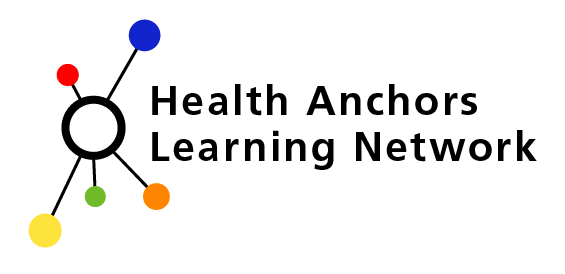Health Justice Partnerships and Anchor Action blog 1/3
Blog 1 in a three-part series on Health Justice Partnerships
Health justice partnerships integrate welfare rights advice services with patient care. They address social and economic drivers of poor health such as debt, income, housing and employment issues. Health justice partnerships strengthen the actions of healthcare services against poverty and health inequality.
Justice and health
When we hear the words ‘law’ or ‘justice’, we often think of courtrooms, judges or prisons. But the law pervades everyday life in more extensive and subtle ways, setting the framework of rules within which society operates. For example, it dictates the duties of the state towards its citizens, the obligations of landlords towards their tenants, and the rights of employees in the workplace.
The social determinants of health are widely discussed in public health circles, but the role of the law within them is rarely recognised. Social welfare legal problems are significant contributors to health inequalities, such as: very low income, problem debt, unfit living conditions or homelessness, unsafe work environments, discrimination, and exclusion from employment, education or social care. They have demonstrable impacts on mental and physical health, and predominantly affect people living on low incomes and with other social or economic vulnerabilities. Empowering people to secure their legal rights can help to rectify these issues.
Welfare rights advice organisations
Understanding our legal rights and navigating the welfare system is extremely complex, and often people will need assistance. At the most basic level this could include providing written information or guidance, but very often people will need more help to effectively resolve their problems; for example, advice on which course of action to take, practical support with claims or appeals, or representation at tribunal hearings. This is the role of welfare rights advisors.
Welfare rights advice organisations are very diverse. Commonly-known examples would be charities such as Citizens Advice or Local Authority services such as financial inclusion or money advice teams. However, this work is much more extensive; the advisors may be practising solicitors or welfare rights specialists working in a range of non-profit organisations such as law centres, community legal advice services and other charities. In whatever form, these organisations are staffed by professionals who are trained and insured to give advice on matters of social welfare law (welfare benefits, debt, housing, employment, education, community care and immigration). They may provide assistance with single or multiple legal issues.
Health Justice Partnerships
Health Justice Partnerships are collaborations between health services and organisations specialising in welfare rights. They exist in many healthcare settings, including GP practices, hospital clinics, mental health services, hospices, maternity services and others. There are different ways that welfare rights services can be integrated with healthcare, such as: embedding advisors within multidisciplinary care teams, delivering advice sessions on site within healthcare buildings, and/or developing referral and booking systems to connect patients into a particular service.
Navigation schemes such as social prescribing can direct people to external advice organisations, although this is often insufficient to promote access given the lack of capacity in the sector. Health Justice Partnerships focus on dedicated resourcing and in-house provision of expert legal advice, enabling immediate access for patients and a collaborative working relationship with healthcare teams. This is particularly important in the care of more complex and vulnerable groups.
Health Justice Partnerships have a wide range of benefits. People often avoid or delay seeking advice if they lack awareness of their rights, feel stigmatised by welfare problems, or are fearful of legal processes; a referral from a healthcare professional can be the nudge they need to seek help. This in turn helps individuals to access heating, better quality food and other provisions that are protective to health, and there is strong evidence for resulting improvements in mental health and wellbeing.
For impactful case studies, read our other blogs in the Health Justice Partnerships series: Southwark Law Centre’s work with homeless patients and Hertfordshire Money Advice Unit’s work within mental health settings.
Health Justice Partnership and Anchor Action
Partnering with welfare rights advice organisations is important in any anti-poverty or health inequalities strategy. Poor health is heavily affected by financial circumstances, but the scope is much wider than that. The NHS is increasingly recognising the importance of housing conditions for health; legal intervention can compel landlords to fulfil their duties, such as carrying out repairs, treating mould and damp, or complying with overcrowding rules. Supporting early years development is also critical for long-term health and wellbeing. Legal services can assist women with their maternity rights, helping to secure employment and income; they can also prevent school exclusions and ensure access to special education for children with learning disabilities.
The scope for prevention is enormous too; for example, by resolving immigration issues that may lead to rough sleeping, or debt issues that may trigger mental health crises.
Next Steps
Many Health Justice Partnerships are localised and small-scale projects, and greater implementation and scaling up could help the NHS in its ambitions towards tackling health inequalities. There is much that the NHS can do to support the development of Health Justice Partnerships locally:
Start by reaching out to local welfare rights organisations and discussing how you can work in closer partnership.
Consider how you can provide rent-free space within NHS buildings: this allows advice services to work on site and provide integrated and accessible services for patients.
And where possible, invest some funds so the advice services can develop the capacity needed to receive regular referrals from healthcare teams.
Top tips to get started:
Consider priority patient groups, where the impacts of deprivation are high
Build relationships with the local welfare rights organisations
Work together to design and implement a partnership that is tailored and appropriate to the local setting.
For further information, please see our brief guide to support the implementation of Health Justice Partnerships, or contact us at health-justice@ucl.ac.uk
Dr Sarah Beardon
Senior Research and Policy Fellow
UCL Faculty of Laws
